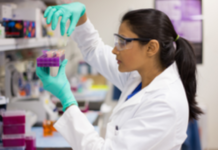New York–India came down by one slot and was ranked 131st among 188 countries on Human Development Index (HDI) 2016 released by the United Nations Development Programme (UNDP).
India fell under the “medium human development category” and its HDI, at 0.624, was behind Sri Lanka and the Maldives in South Asia.
Sri Lanka and the Maldives were ranked 73 and 105 respectively and figure in the “high human development” section.
India was placed behind countries like Gabon (109), Egypt (111), Indonesia (113), South Africa (119) and Iraq (121) among others. The report lists a total of 188 countries.
China occupies the 90th spot. Bhutan is at 132, Bangladesh 139, Nepal 144 and Pakistan is at 147.
Devised and launched in 1990, HDI is a statistic which ranks countries into four tiers of human development on the basis of indicators like life expectancy, education and per capita income.
A higher lifespan, higher level of education and higher GDP per capita results in a country scoring higher HDI.
The top three countries in HDI were Norway (0.949), Australia (0.939) and Switzerland (0.939).
“Identifying those who have been left out of the progress in human development and mapping their locations are essential for useful advocacy and effective policymaking,” according to the report.
“Such mapping can help development activists demand action and guide policymakers in formulating and implementing policies to improve the well-being of marginalised and vulnerable people,” it added.
The report said gender equality and women’s empowerment were fundamental dimensions of human development.
However, globally, women have a lower HDI than men, despite having higher life expectancy at birth, said the report.
South Asia’s Gender Development Index (GDI) is the lowest.
The GDI takes into account the disparity between the HDI of men and women — the higher the disparity, the lower the GDI.
India’s GDI is 0.819, compared to the developing country average of 0.913.
The UNDP report said the sustainable development goals, critical in their own right, were also crucial for human development and helped them realise their full potential in life.(IANS)






